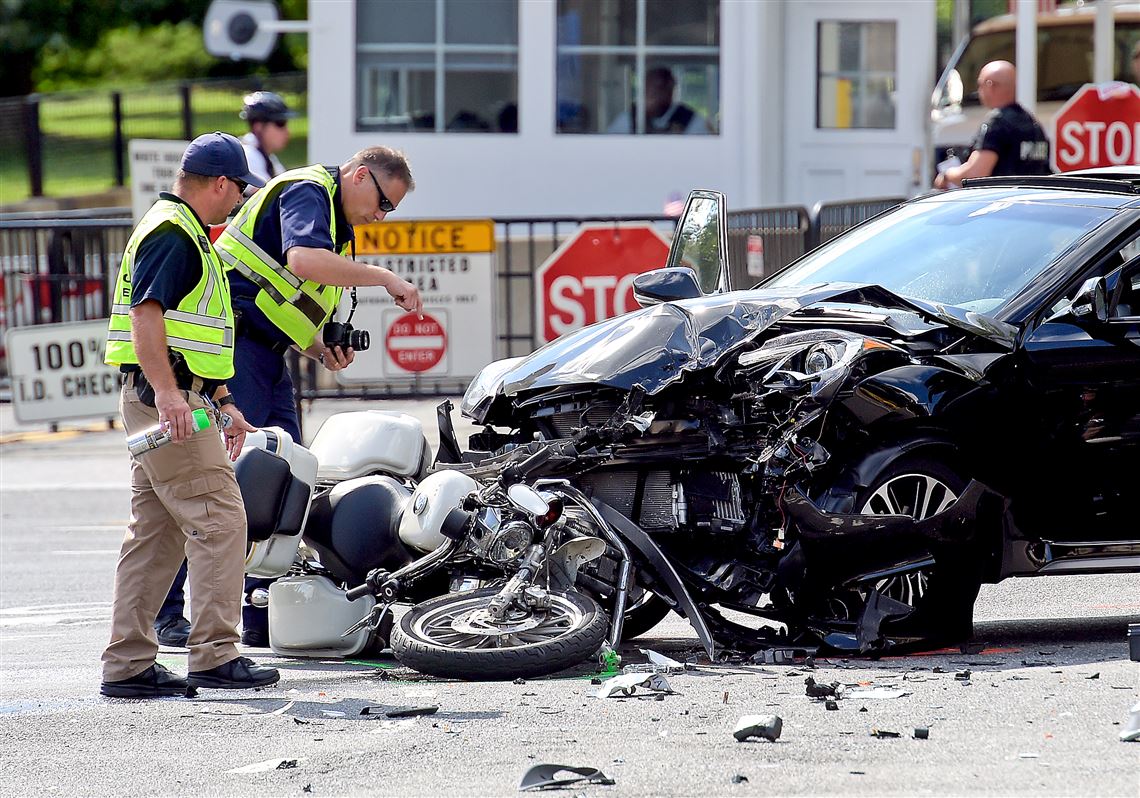Statistics projecting a 5.6 percent drop in motorcycle fatalities last year may be a weather-related anomaly, but BJ McMullan will take good news where he can get it.
In addition to his position as a master police officer with Pittsburgh’s motorcycle squad, Mr. McMullan owns ProRider, a company that provides motorcycle training for already experienced officers and other riders. The company has 21 locations nationwide.
“That’s the right direction,” Mr. McMullan said about a study released Wednesday by the Governors Highway Safety Association that projects motorcycle fatalities dropped from 5,286 in 2016 — the second-highest total in history — to 4,990 last year.
The author of the study, Tara Casanova Powell, agreed but cautioned not to read too much into one year’s worth of numbers. She said many factors can limit or expand the number of motorcycle miles driven in a given year.
For example, hurricanes last year over large parts of the South limited motorcycle riding somewhat.
“I don’t think this is something that is a trend,” Ms. Powell said. “One of the major factors is weather. It can have an effect on the riding season if there’s a mild winter or if there’s harsh weather.”
One factor that doesn’t change is the impact of drinking and riding. In 2016, 25 percent of all motorcyclists killed in crashes had blood-alcohol levels meeting the legal definition of intoxication. That number jumped to 55 percent for cyclists killed in single-vehicle crashes on weekend nights.
“Unfortunately, drinking and riding go hand in hand with some motorcycle operators,” Ms. Powell said, explaining that the skills needed to balance and turn a motorcycle are impaired by alcohol.
“If you have been drinking any alcohol at all, you shouldn’t be riding. This is never a good idea.”
Another factor in motorcycle deaths is whether an operator is wearing a helmet. The Centers for Disease Control and Prevention estimates that using a helmet reduces the risk of head injuries in motorcycle accidents by 69 percent and deaths by 37 percent.
The National Center for Statistics and Analysis estimated 802 lives would have been saved in 2016 if all riders wore helmets.
In Pennsylvania, motorcycle deaths dropped 3.7 percent, from 191 in 2016 to 184 last year. The state had 845,977 licensed motorcycle operators in 2017 and 377,892 registered cycles.
Mr. McMullan said he’s encouraged that riders seem interested in improving their skills. Pennsylvania is expanding its training offerings by hiring a new coordinator, nationally recognized Total Control Training Inc., which will offer a beginner’s class for the first time.
Since ProRider opened in 2012, more than 1,000 experienced riders have taken classes at its facility in Collier.
“It’s hard to get riders who have been out there that long to get more training, but they’re coming,” he said.
Ed Blazina: eblazina@post-gazette.com, 412-263-1470 or on Twitter @EdBlazina.
First Published: May 2, 2018, 8:30 a.m.
Updated: May 2, 2018, 9:45 a.m.

















